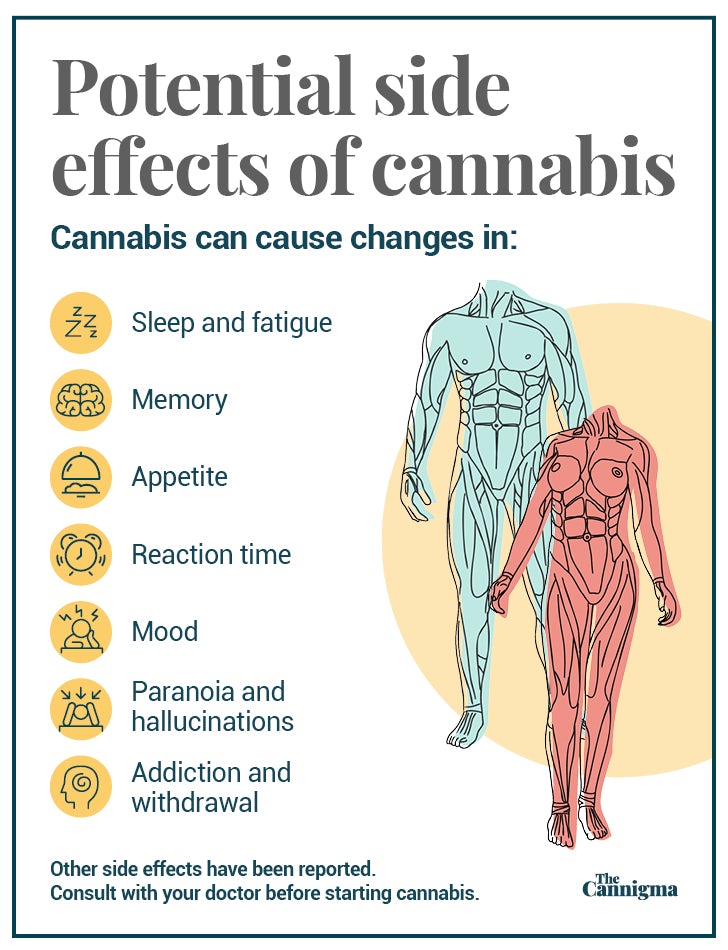Overview
Cannabis has been proven to help patients suffering from nausea, inflammation, and abdominal pain, all of which are symptoms of Irritable Bowel Syndrome (IBS).
The condition affects between 25 and 45 million people in the United States alone, according to the International Foundation for Gastrointestinal Disorders. Currently available medications are limited and often carry harsh burdensome side effects.
In recent years, there has been a growing interest in the use of cannabis to treat IBS, CBD for IBS, and studies have shown promising results for cannabis products in IBS treatment. In addition, cannabis can be effective in treating some of the secondary results of IBS, which can cause anxiety and depression.
How Cannabis Works on IBS
The endocannabinoid system (ECS) exists in all vertebrates and helps regulate crucial functions such as sleep, pain, and appetite. The human body produces its own cannabinoids, which modulate and activate its various functions, but as its name suggests, the endocannabinoid system can also be regulated and triggered by cannabinoids found in the cannabis plant.
The ECS also plays a large role in maintaining homeostasis in the digestive system, and is involved in the internal biological processes that lead to nausea, vomiting, gut motility, and intestinal inflammation. As a result, the ECS may be an important therapeutic target in the treatment of diseases affecting the gastrointestinal tract, including IBS.
The two primary cannabinoid receptors are present all over the body, and the receptor CB2 is particularly abundant in the gastrointestinal tract. Tetrahydrocannabinol (THC), the main psychoactive ingredient in cannabis, helps activate both receptors. Research indicates that activating cannabinoid receptors in the gastrointestinal tract may reduce motility and inflammation, and decrease hypersensitivity in the gut. In addition, animal studies have found that activation of certain cannabinoid receptors inhibits visceral pain — pain felt in the internal organs. In the case of IBS this refers to the intestines or bowels.
In addition, there is a theory that holds that depressed endocannabinoid levels — known as endocannabinoid deficiency — correlate with several difficult-to-treat conditions, including fibromyalgia, IBS, and migraines. The theory is predominantly based on pre-clinical research, and as such is still in preliminary stages. If the theory is proven, however, it would contribute to understanding why cannabis is effective in treating these conditions.
Medical Studies on IBS & Cannabis
Prohibitions on cannabis have stifled research in the past, but several survey studies have found that IBS patients who used cannabis do experience symptom relief, although not all studies have come to the same conclusion.
- A pharmacogenetic trial found that dronabinol (a synthetic THC) can slow down colon activity and make the organ more compliant for patients with diarrhea predominant and alternating IBS.
- A study concluded that dronabinol does not affect visceral perception to rectal distension or the threshold of discomfort.
- A small, short-term randomized control trial found no treatment effects among participants with diarrhea predominant IBS who were given dronabinol, or a placebo for two days.
- A 2016 study described how “increasing our understanding of the ECS will greatly advance our knowledge of interactions between the brain and gut and could lead to new treatments for gastrointestinal disorders.”
CBD and IBS
Because they are usually derived from hemp — which has very low amounts of THC (legally defined as less than 0.3% in the US) — CBD products are widely available even in jurisdictions where medical marijuana has yet to be legalized. And while it is still in its early stages, research on CBD has indicated that it could potentially be effective as a treatment for IBS.
- A 2008 study described the ability of cannabinoids to “reduce gastrointestinal motility in randomized clinical trials,” indicating how the use of CBD could calm the symptoms of IBS.
Chronic pain and cramping are symptoms of IBS, and CBD is being researched as a potential therapy for pain relief. According to Gallup, 40% of all CBD consumers in the United States use it to deal with the symptoms of pain. Clinical research is still lacking in determining how CBD affects pain, though there have been promising studies, including one that described CBD’s potential as a way to suppress “mechanical and thermal pain hypersensitivity in both inflammatory and neuropathic pain conditions.”
Potential side effects of cannabis use
In the studies on dronabinol, common side effects included fatigue, drowsiness, and headaches. In general, THC has few side effects.

Some of the short-term side effects of THC can include memory, motor and judgement impairment and the long term effects can include cognitive impairment, a small risk of addiction, as well as an increased risk of developing a psychotic disorder. Further research is necessary to explore the potential interaction between other IBS medications and specific doses and forms of CBD and THC.
If you are considering or already using cannabis to treat IBS, contact your doctor to discuss treatment options.
Sign up for bi-weekly updates, packed full of cannabis education, recipes, and tips. Your inbox will love it.

 Shop
Shop Support
Support